Intentar ORO - Gratis
Challenging the Objectivity of Science
Philosophy Now
|August/September 2025
Sina Mirzaye Shirkoohi observes science to get the facts straight about it.

In his influential 1976 textbook What Is This Thing Called Science?, Alan Chalmers examines how scientific knowledge is acquired and validated, by looking at the methods underpinning scientific inquiry. He presents and explores the idea that science is fundamentally grounded in the acquisition of objective knowledge through direct observation; that sensory data serves as the bedrock upon which scientific understanding is built. Then he describes some of the criticisms of this picture, and various attempts by recent thinkers to build a more accurate model of the development of science. I want to carry this is a little further. The central thesis of my critique is that observations in science are not purely objective: they’re influenced most notably by theoretical frameworks, prior knowledge, and subjective biases that shape how data are perceived and interpreted.
The Traditional View of Science
The traditional view is that science is grounded in observable facts obtained through direct sensory experience. These observations are objective: facts that are indisputable, checkable, independent of the foibles of the individual observer and directly accessible through our senses. This unparalleled level of objectivity, it is widely believed, distinguishes science from other forms of knowledge, making it a beacon of certainty in a world filled with personal biases and unfounded opinions. It shows that the scientific method is an unswerving path to truth, free from the messiness of individual perspectives.
Esta historia es de la edición August/September 2025 de Philosophy Now.
Suscríbete a Magzter GOLD para acceder a miles de historias premium seleccionadas y a más de 9000 revistas y periódicos.
¿Ya eres suscriptor? Iniciar sesión
MÁS HISTORIAS DE Philosophy Now

Philosophy Now
Pharmaco-Metaphysics?
Raymond Tallis argues against acidic assertions, and doubts DMT discoveries.
7 mins
August/September 2025
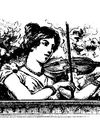
Philosophy Now
Nine Spiritual Exercises
Massimo Pigliucci explains how to get Philo-Sophical.
3 mins
August/September 2025

Philosophy Now
Books
We follow mammal's search for meaning, as Mark Vorobej savages John Gray's book of impractical cat philosophy, while B.V.E. Hyde ponders the point of Jordan Peterson. In Classics, Hilarius Bogbinder reviews Plato's Republic.
21 mins
August/September 2025
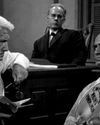
Philosophy Now
The Centennial of the Scopes ‘Monkey’ Trial
Tim Madigan on the creation and the evolution of a legend.
14 mins
August/September 2025
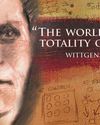
Philosophy Now
Gödel, Wittgenstein, & the Limits of Knowledge
Michael D. McGranahan takes us to the edge of language, mathematics and science.
10 mins
August/September 2025
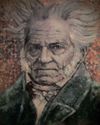
Philosophy Now
Weltschmerz and the World
Ian James Kidd takes a realistic and global view of the history of pessimism.
10 mins
August/September 2025
Philosophy Now
What Makes A Work Of Art Great?
Each answer below receives a book. Apologies to all the entrants not included.
16 mins
August/September 2025
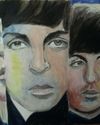
Philosophy Now
The Beatles: Nothing is Real
Clinton Van Inman gets back to the psychedelic Sixties.
4 mins
August/September 2025

Philosophy Now
The Post-Truth Kerfuffle
Susan Haack, who is Distinguished Professor in the Humanities, Cooper Senior Scholar in Arts & Sciences, Professor of Philosophy, and Professor of Law, at the University of Miami, talks with Angela Tan about how and when we know.
11 mins
August/September 2025
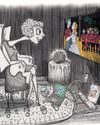
Philosophy Now
A Crisis of Attention
Paul Doolan attends to our culture of attention demanding.
13 mins
August/September 2025
Listen
Translate
Change font size
